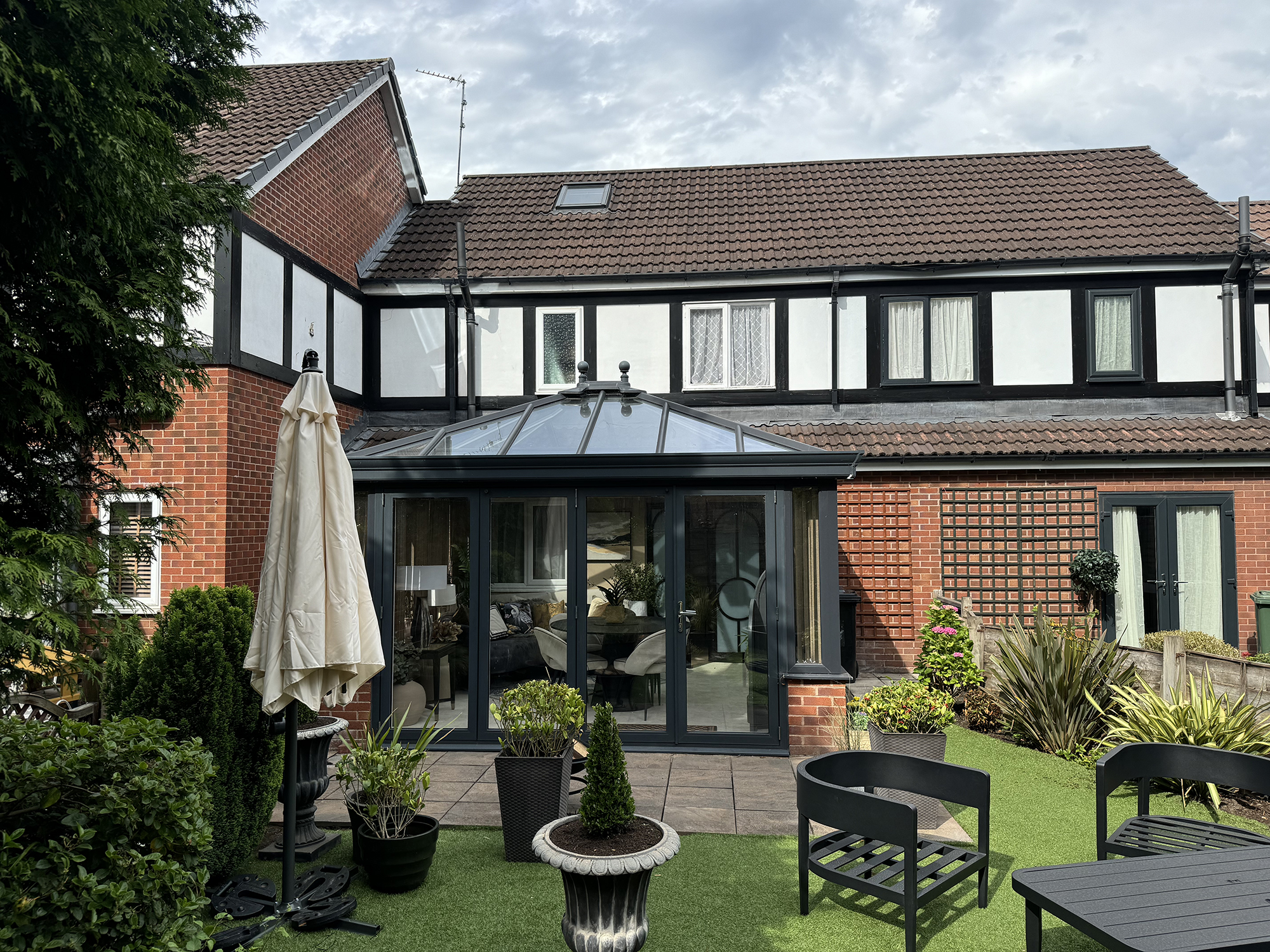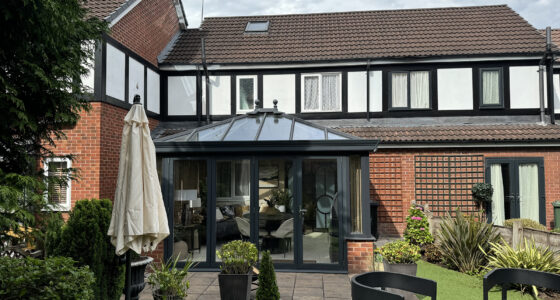In what marks a significant and long-overdue moment in British television history, Coronation Street has made headlines once again, not for a dramatic murder or a shock return, but for a powerful stride in LGBTQ+ representation.
Carla and Lisa have now become the first same-sex couple to purchase a house on the iconic cobbles, with recent scenes showing their move into Number 6 Coronation Street. This moment is more than a simple storyline development; it’s a meaningful cultural milestone in the UK’s longest-running soap opera, reflecting broader shifts in society and continuing the show’s legacy as a mirror to the times we live in.
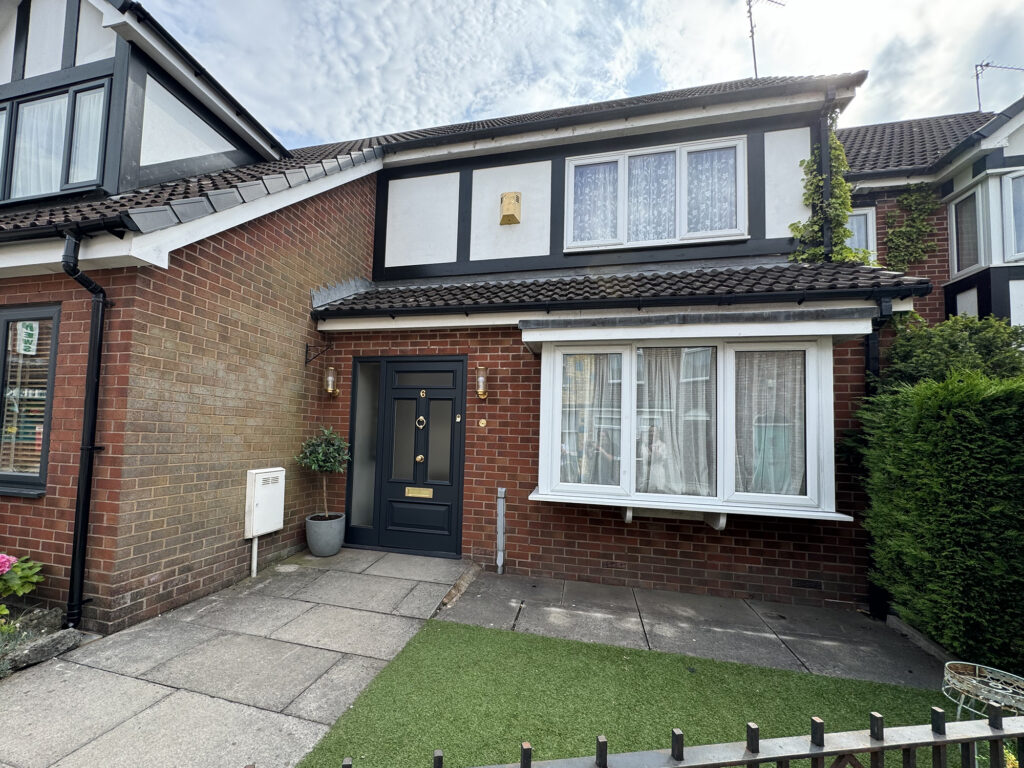
Breaking new ground
Number 6 has seen its fair share of history. Longtime viewers will recall that the house was once the home of the likes of Des Barnes and Charlie Stubbs, who brought chaos to the street in equal measure during the late 1990s and 2000s. It later became home to the Windass family, and more recently, Yasmeen Nazir, a central figure in one of Corrie’s most powerful domestic abuse storylines in recent years.
The home has traditionally been associated with families and dramatic arcs, but never before has it, nor any other house on the cobbles, been owned a same-sex couple. With Carla and Lisa due to make it their home, No. 6 becomes a place of new beginnings, not only for their relationship but for LGBTQ+ representation in a show that reaches millions.
Carla: A legacy
Carla Connor is one of Coronation Street’s most iconic modern characters. Played by Alison King, Carla has been at the heart of some of the soap’s most gripping storylines, from mental health struggles and business battles to torrid affairs and personal loss. Her evolution into one-half of Corrie’s most iconic same-sex couple is a bold, affirming move, especially given her past with high-profile male relationships, including Peter Barlow, Nick Tisley and Tony Gordon.
Carla’s romance with Lisa, a newer character who has truly grown into a fan favourite, hasn’t just been well-written, it’s been authentic. Their connection has been carefully developed, not rushed, allowing viewers to see a same-sex relationship treated with a nuance and depth that mirrors real life.
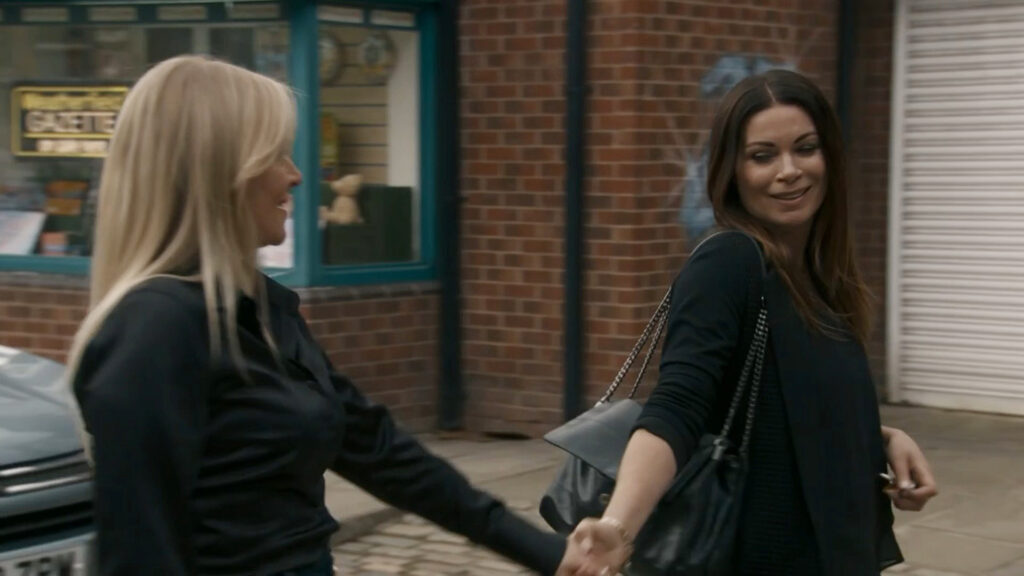
Visibility that matters
The decision to have Carla and Lisa buy a home together is symbolically rich. It’s an affirmation of their place in the community. It says: these women are building a life, claiming space, and making history. Soap operas have long played a vital role in normalising diverse experiences, and this storyline aligns with a growing appetite for inclusive narratives.
This move also marks an important step for Coronation Street, a soap that has, at times, lagged behind others like EastEnders or Hollyoaks in terms of LGBTQ+ storytelling. While Corrie introduced its first gay character, Todd Grimshaw, back in 2003, and later brought in beloved trans character Hayley Cropper, the show has still often played it safe. Carla and Lisa’s homeownership represents a full-circle moment: LGBTQ+ characters aren’t just passing through, they’re putting down roots.
Community and cultural reflection
In an era where LGBTQ+ rights and visibility continue to be a fiercely debated issue in public discourse, especially for young people, moments like this matter. Seeing a same-sex couple buy a home on what is arguably the most famous fictional street in the heart of a northern working-class community, sends a strong, affirming message: love is love, and everyone belongs.
What’s also remarkable is how organically this milestone has unfolded. The couple’s presence is woven into the fabric of daily life, drinking in the Rovers, buying breakfast at Roy’s, and walking the fabled cobbles just like anyone else. That everyday visibility is key to dismantling stereotypes and making sure LGBTQ+ people feel seen, not just spotlighted.
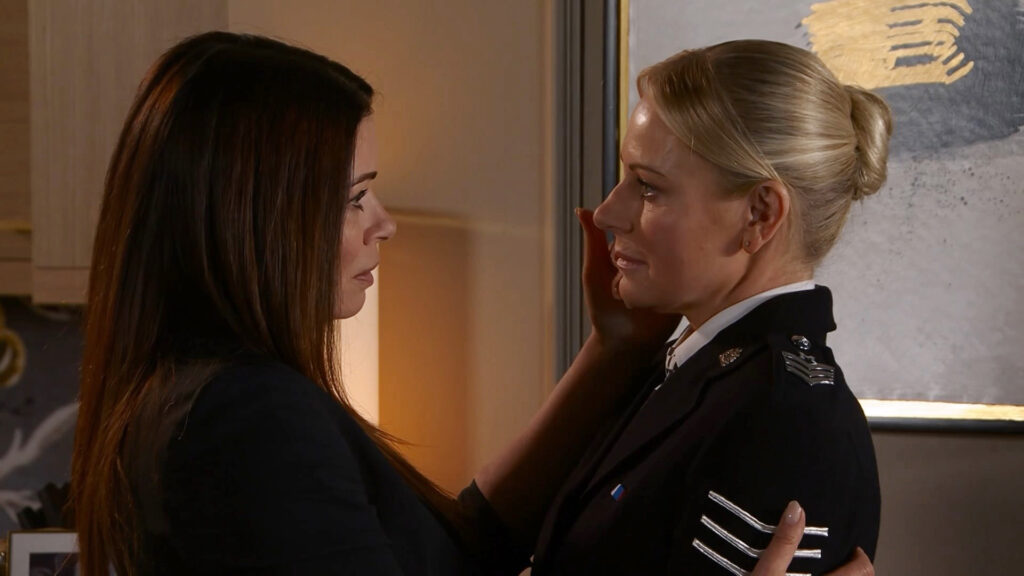
Looking ahead
For the soap’s devoted fans and for younger LGBTQ+ viewers tuning in with their families, Carla and Lisa’s storyline is more than just entertainment, it’s a statement. It’s a promise that the stories of love, family, and homeownership are not exclusive to heterosexual characters. It opens the door, quite literally, for more inclusive narratives in mainstream media.
As Carla and Lisa turned the key to No. 6, they weren’t just walking into a house, they stepped into history. And Coronation Street, once again, shows that it’s not afraid to evolve with the times, and lead the charge for representation where it matters most: right in the living rooms of millions.
Swarla HQ xo
Images copyright of ITV

